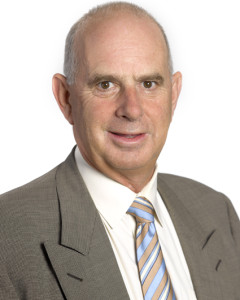Opinion – Saying no to Nimbyism
A story published in the UK tabloids a couple of years ago told of how a children’s playground in posh part of Berkshire became the subject of legal action to have it closed because of the noise created by excited children.
The reason the story attracted wide public attention was that the legal action was brought by the pilot of a British Airways Concorde – an aircraft whose ear-splitting take offs reached 110-plus decibels and made hellish the lives of people living near Heathrow Airport.

Graham Sherry is the Chairman of AMES Australia
This amazing act of nimbyism is an amusing story and from a distance of 17,000 kilometres might seem laughably irrelevant.
But trust me, nimbyism (Nimby: ‘not in my back yard’) is alive and well in Melbourne and more recently in Bendigo; and, to varying degrees, we are all guilty of it.
I take my grandkids to McDonalds but I wouldn’t want one built in my street. I also have sympathy for people who fall on hard times and become homeless; but, if I’m brutally honest with myself, I wouldn’t want one of these unfortunates camped outside my house.
One of the biggest sources of nimbysim is in the area of the settling of refugees and asylum seekers in our suburbs. The issue has become important this week as we learn the first Syrian refugees have begun to arrive.
A few years ago AMES Australia, the organisation I chair, tried to secure a property that came on the market in leafy Camberwell to temporarily house recently arrived refugees and asylum seekers.
In attempting to secure a building that was eminently suitable for this purpose in a market where such properties were scarce, you would have thought we had tried to assassinate the Pope such was the local outrage.
There were flyers placed in letter boxes, outraged epistles to the local paper, community forums that raged with antipathy and even local politicians got involved.
The whole thing was an unedifying experience; to see some of our society’s wealthiest and most privileged citizens turn out in force to prevent some of the poorest and most vulnerable of the world’s citizens temporarily move into the neighbourhood made me sick at heart.
I think it was Winston Churchill who said: “The measure of a civilisation is how it treats its weakest members”.
Well I’m afraid the burghers of Camberwell did not measure up to well against that benchmark.
Maybe the news that now a quarter of all Australians were born overseas and that half of us have at least one parent born elsewhere hasn’t reached the leafy eastern suburbs.
That news needs to be disseminated widely; along with the benefits diversity and multiculturalism bring to this country now that Australia is to accept another 12,000 refugees from the brutal and vicious conflict in Syria.
The essence of nimbyism is selfishness, and selfishness is a destructive quality in a society.
Societies are built on unselfishness and the good of the many over the interests of the individual.
Without society and without public life and civic institutions humans are reduced to a state of competitive anarchy in which we are living lives that are, as the philosopher Thomas Hobbes said, likely to be “nasty brutish and short”.
What galls me more about nimbyism is that at its core it is counter to the values of egalitarianism and mateship that helped build this nation.
There were no nimbys in the trenches at Gallipoli and there were no nimbys among all of the ordinary people and emergency services personnel who responded to the Black Saturday bushfire disaster.
This country has always welcomed newcomers to its shores and we like to think of Australia as a place where everyone gets a fair go.
But our precious hard-won values of tolerance, egalitarianism and kindness are under threat from a creeping sense of selfishness.
Our parents and grandparents put their nation ahead of their own interests when they enlisted for two world wars and when they volunteered in their communities for things like local sports clubs, schools, meals on wheels, and Lions and Rotary clubs.
These days we seem less willing to inconvenience ourselves for the greater good and similarly we seem less tolerant of things that inconvenience us – even if they are to the benefit of others.
Recent troubling research shows that young people are turning away from the ideas of a civic society and democratic processes.
The Lowy Institute found that among 18-to-29-year-olds, fewer than half say they prefer democracy over any other kind of government.
And more than half said they don’t feel obliged to make a contribution to the society in which they live.
At AMES Australia we struggle to attract large numbers of younger volunteers; the vast majority of our 2000-strong legion of volunteers is aged over 45.
Maybe there are deep cultural currents running here; maybe the education system doesn’t value the nation’s founding principles enough?
Maybe the seismic shift in information sources is to blame – with most young Australians now gathering their news from social media?
Maybe our youngsters are just too comfortable having never faced a serious challenge to their way of life?
Whatever the case, I believe that we as Australians need to reassert that sense of purpose and civic pride that was present at the inception of the Commonwealth more than 100 years ago.
We need to sell the message that the adventure of forging a nation based on the values of fairness, openness and egalitarianism was one worth embarking on then and one worth persisting with now.
Graham Sherry is the Chairman of AMES Australia












